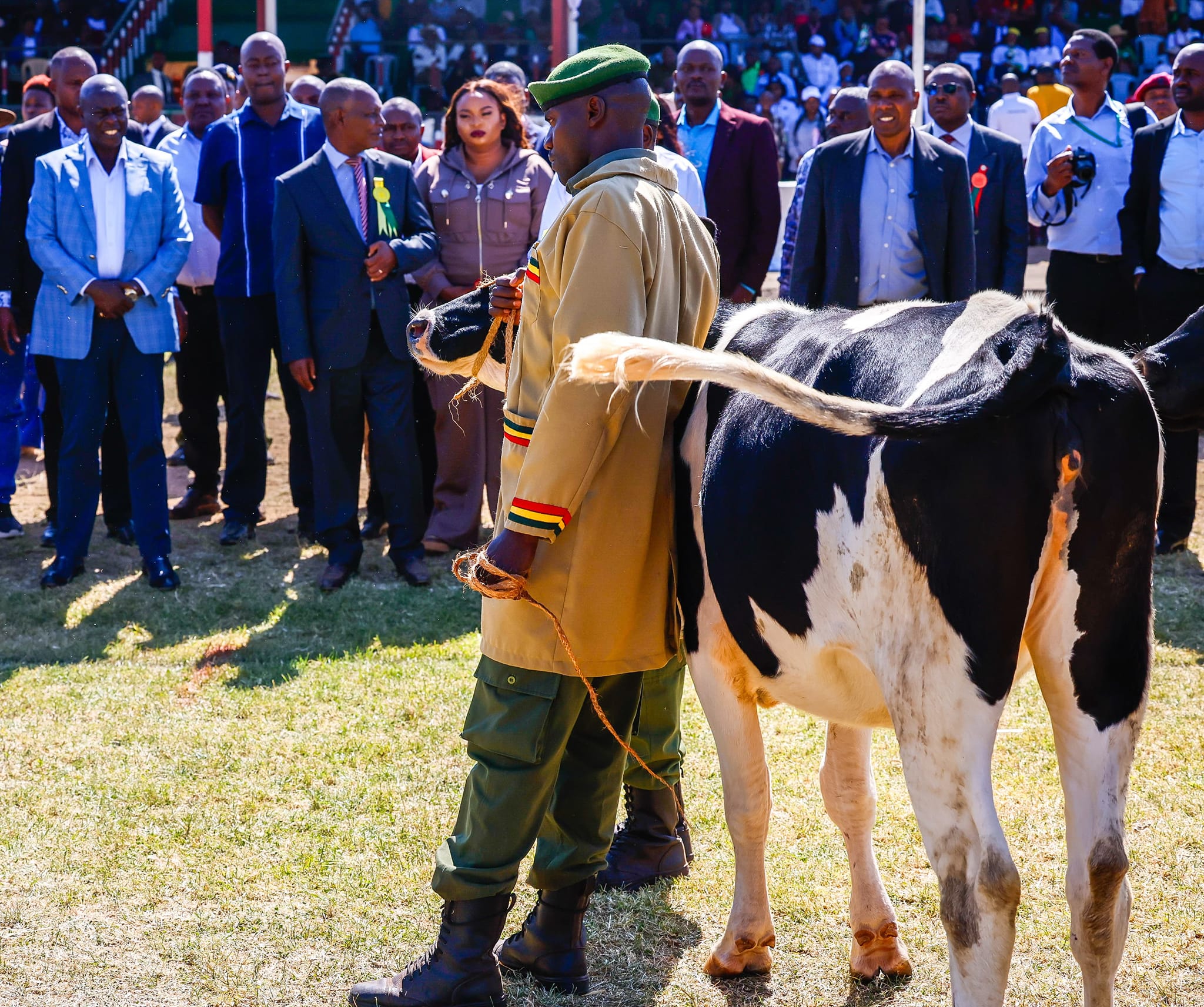DP Gachagua calls for financial transparency in Cooperatives movement
Deputy President Rigathi Gachagua has asked Coffee Cooperative Societies to publish and make known details of their financial costs and deductions to their members.
This comes amid heightened efforts to entrench efficient financial management practices in the cooperative movement through legal, regulatory and policy reforms, alongside the coffee subsector.
At the same time, the Government has stepped up measures to comply with the European Union's zero-deforestation law (EUDR), which require companies trading in coffee to conduct extensive diligence on the value chain to ensure the production of the crop does not originate from lands that have been deforested.
Deputy President Gachagua, who was tasked by President William Ruto to lead reforms in Coffee Sub-sector, on Friday, asked the Sacco management officials to make full disclosure of the financial costs.
He explained that this will enable farmers to question any costs they find suspicious, thus contribute to better governance and accountability of the societies.
He said this as he also called political leaders to keep off the ongoing reforms in the agriculture sector.
"I have asked the Ministry of Co-operatives and Ministry of Agriculture to fast track the administrative and legal actions to enhance Corporate governance, transparency and accountability in co-operative societies. This includes direct payment to coffee farmers from the Direct Settlement System (DSS). For full disclosure, co-operative societies must publish and make known their costs and deductions to their members," said Mr Gachagua.
He was speaking at the official opening of the 2024 Central Kenya National Agricultural Show at Kabiru-ini grounds in Nyeri, Mr Gachagua said the Government is keen in ensuring Cooperative Societies end wastage and are efficiently managed and profitable like a business enterprise.
Mr Gachagua was representing President William Ruto at the event, where he was accompanied by Cabinet Secretary for Agriculture Dr Andrew Karanja, Nyeri Governor Mutahi Kahiga, Senators Wahome Wamatinga (Nyeri) and John Methu (Nyandarua), among other Government officials and political leaders.
On Kenya's compliance with European Union's zero-deforestation law (EUDR), Mr Gachagua said; "we have mobilised action to ensure compliance with the European Union Deforestation Regulations before the December 30, 2024 deadline".
He said measures are being taken to ensure the coffee sector is aligned with European anti-deforestation regulations.
"This will enable us retain the profitable European Union market, which accounts for over 55 per cent of our coffee," he said.
In his speech, the Deputy President highlighted the Government's interventions in various crops.
He said the Government is addressing the challenges in Coffee, Tea, Dairy, Avocado and Macadamia sub-sectors through pushing of radical reforms.
"In supporting our small-scale coffee farmer, we have also availed Ksh3 billion for the Coffee Cherry Revolving Fund and a further Ksh2 billion for the Coffee Debt Waivers. It is, however, unacceptable that despite the rigorous reforms of transforming the coffee value chain, governance of cooperatives remains the weakest link in freeing and empowering our farmers," he added.
Regarding the tea sub-sector, the Deputy President said the Government has made progress with the ongoing reforms since the Kericho Tea Conference last year.
Last week while in Mombasa, the Deputy President engaged the newly elected Directors of the Kenya Tea Development Authority (KTDA) and they agreed that the tea farmer is a priority.
"As such, cutting down production and operational costs, eliminating loss-making subsidiaries and strengthening value addition for more money to trickle down to the farmer must be done," he stated.
In the Macadamia sub-sector, he said, the Government has initiated a plan for full-scale lasting reforms- informed by robust farmer engagements.
"We are ready to discuss with processors and exporters on minimum returns equivalent to their sweat," he says.
In the Avocado Subsector, the Government has implemented crucial interventions, such as removal of red tapes and streamlined processing and inspection for export.
This, he said, has eliminated undue delays and ensured quality fruits for export.
"We are also organising Avocado farmers into cooperatives for better economies of scale, as we expand our market into the Unites States of America, Japan, India, Malaysia, among others," he added.
On dairy farming, the Deputy President said the Ruto administration is reforming the sub-sector and is implementing the minimum pay per litre at Ksh50, alongside prompt payment.

